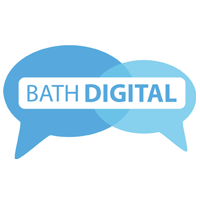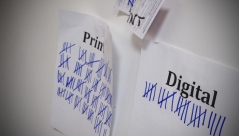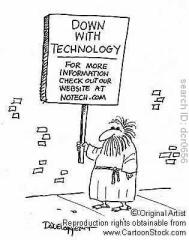Yesterday at the Bath Digital Festival, a new event was launched. D:BATE held their first ever showdown between experts, on the subject “Digital Is Killing The Print Industry”.
In the Pump Rooms, the crowd was polled on whether they agree with the statement ‘Digital is killing the print industry- the presses will stop running in ten years’. The majority, 20 people, were undecided while 19 were against and 16 were for the statement.
The debate consisted of two teams of three who were fighting to convert the audience to their side.
Arguing FOR the motion were:
Chris Book (audiobook extraordinaire)
Richard Godfrey (who deals in making print products from online content. conflicted or what?)
Julian Gough (author and all around interesting person. Also, my notes say he was wearing a nice jacket).
AGAINST the motion were:
Mike Goldsmith (Future Publishing’s digital genius, again a conflicted position)
Sam Holliday (editor in chief of the Bath Chronical)
Robert Topping (of the beautiful bookshop).
Here are the best quotes to sum up the arguments:
FOR
“The Ability of the printed word is amazing, but why are we so wedded to this format? It’s a dead tree!” – Chris Book (Julian Gough later added that “people think books smell nice but they don’t, they smell like dead trees!”)
“Traditional publishing is probably already dead, it just doesn’t know it yet.” – Richard Godfrey, who also compared this debate to one that may have been had before:
“Paper is killing the stone industry. Paper is easier, cheaper to make, more adaptable and easier to correct!” / “No no no, you’ll lose all the craftsmanship! I love the feel of heavy stones in my hand while I read…”
Julian Gough listing the things books have got wrong, “books don’t even stay open! We’ve had 500 years to sort that out, and they still don’t even stay open unless you keep your hand on them.”
“I do love books, but I don’t love the format I love the content… We want to hold onto the old thing because in the past change has always meant famine or war. Now it’s pennicillin or the iPad.” – Julian Gough
AGAINST
“The Sun on Sunday proves there is still a huge market for print journalism. If the industry was dead, why would News Int. have launched this new product, which has been a huge success.” – Sam Holliday, who also stated that “print will have to change and innovate… It may need to get smaller but it will survive.”
“Books have always been for niches… You have to sell the right book to the right person.” – Robert Topping, who also pointed out that “everything that was going to wipe out the book before (radio, TV…) has not managed…books won’t break or run out of battery.” He finished with the excellent point that “if you only read ebooks, what will your shelves look like?”
The way in which print is different to digital is that print “gives you memories, passed down for generations. (And yes, it smells terrible and takes up space.) Digital just doesn’t care. It doesn’t want to be collectable, it doesn’t ever look back. It looks forward, to your next purchase.” – Mike Goldsmith
“People want choice and digital offers that… (so) print needs to become better.” – Mike Goldsmith
RESULT
At the end of the evening, and using a very biased paper-based polling system, the audience voted AGAINST the motion that digital will replace print in 10 years, by a landslide 41 votes to 20.
5 voters were still undecided, perhaps because the general consensus at the end of the debate was that a hybrid of print and digital forms was the future publishing. And there was no little paper card for this option.




